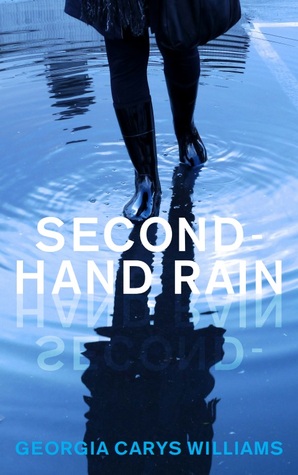 For readers unsure what to expect from Georgia Carys Williams’ debut collection of short stories, Second-Hand Rain, the array of voices, characters, places and environments from Wales and beyond may come as a pleasant surprise. Williams is one of an increasing number of young Welsh writers who are combining their creative writing with wider critical work, researching towards a PhD in Creative Writing at Swansea University at the same time as forging an already successful writing career. The effects of this combination are visible in the richness of the stories in Second-Hand Rain and their presentation of characters facing moments of significant psychological or emotional change.
For readers unsure what to expect from Georgia Carys Williams’ debut collection of short stories, Second-Hand Rain, the array of voices, characters, places and environments from Wales and beyond may come as a pleasant surprise. Williams is one of an increasing number of young Welsh writers who are combining their creative writing with wider critical work, researching towards a PhD in Creative Writing at Swansea University at the same time as forging an already successful writing career. The effects of this combination are visible in the richness of the stories in Second-Hand Rain and their presentation of characters facing moments of significant psychological or emotional change.
The collection opens with the haunting voice of a small child who only exists as the product of an episode of Pseudocyesis in ‘Beautifully Greek’. As the narrative unfolds it tells the emotional story of a phantom child who has resigned herself to ‘watching life and not playing a part’. The story sets the tone for a collection which gives voice to the marginalised, the forgotten and the unexpected creations of Williams’ creative imagination. From a proud Lyrebird whose song is silenced in ‘Lyrebird Lament’, to the story of sibling rivalry and discovery in ‘My Sister, the Conductor’, the voices each offer a glimpse of a memory that is as watery and elusive as the collection’s title suggests.
As with all collections of this nature, the voices in some stories resonate more strongly than others. In particular, that of a young girl struggling to come to terms with the death of her grandmother in ‘Tangerines’ offers a poignant and moving insight into the mindset of a young child who opens with her assertion that she had ‘heard that oranges have the power to make people happy’. The contrast between the moist ‘fleshy fruit’ that the young speaker holds in her hands and her experience of her grandmother’s gradual decline strikes a chord is both sad and uplifting at the same time. As the speaker finds herself faced for the first time with the harsh reality of death, her reflexive response is to turn to the fruit through which she shared a tie with her grandmother. Her eventual realisation that her grandmother’s face ‘is one that no tangerines can make happy’ marks a pivotal moment in the development of both the story and the collection.
As in life the theme of death is an ever present force in Second-Hand Rain, making its first appearance in the epigraph from Charlotte Perkins Gilman which reminds readers that ‘death is the essential condition to life’. Williams has woven this thought into her stories, in which death is frequently presented not as an insurmountable obstacle in life, but as an inevitable breath which punctuates the lives of each of the characters. Almost all of the characters here have experienced the shadow of death and loss on their lives. Even in stories such as ‘Lady Venetia’, which adopts an almost fairy-tale narrative style through which to chart the relationship between man and mermaid, the spectre of death cannot be evaded, with reality offering a powerful antidote to the story’s apparent mysticism.
It is this intriguing balance between life and death, reality and imagination, which adds to the impression of water in the collection. Lilting, shifting in focus and constantly moving, the characters in Second-Hand Rain are ultimately reflections of their author’s own astute social observations. It is her ability to write in this evocative way which has already brought Williams to the attention of judges for the Terry Heatherington Prize in 2012 and the Swansea Life Young Writing Category of the Dylan Thomas Prize in 2008.
The final story in the collection is the short, and enigmatic, ‘Belongings’, a brief observation of the insignificance of material possessions in charting the life of an individual. Here, time halts and the reflection sharpens for a moment as the narrator looks at a watch and notes that ‘the face is no longer ticking’. If each of the stories in Second-Hand Rain is a reflection of a different life then the collection as a whole is a literary picture of Williams’ career at this moment. Touching, mature and imaginative, this is a wonderful debut collection from an author who looks set to make a significant contribution to the changing shape of Welsh writing as her career develops.
Second-Hand Rain is available from Parthian now.










